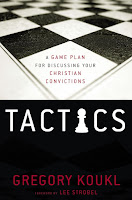Introduction
Legislating Morality: Is It Wise, Is It Legal, Is It Possible by Norman Geisler and Frank Turek has been on my reading list for quite some time. It is often brought up by skeptics that Christians do not have a consistent view of morality, especially when it comes to government. This is often used as evidence of internal inconsistency within the Christian worldview and often leads to the conclusion that Christianity is false. And with the political season upon us yet again, I have been involved in many discussions about morality and politics. When defending the existence of God by using the moral argument, it is important to recognize the difference between moral ontology and moral epistemology (does objective morality exist vs. which objective morality exists) to address the claim of an internal inconsistency; however, we cannot stop there. Often the challenge comes from a genuine concern about the consistency of the moral code that Christians say is objectively established by the God of the Bible. So, it is important that defenders of the Christian worldview educate themselves on views of morality, and in political seasons, the morality of legislating morality.A few weeks ago I decided to put reading two other books on hold and go through this one to better prepare myself as these discussions become more and more common with the season. Was I disappointed with that decision? I will give this book my usual chapter-by-chapter summary treatment then provide my recommendations at the end.








